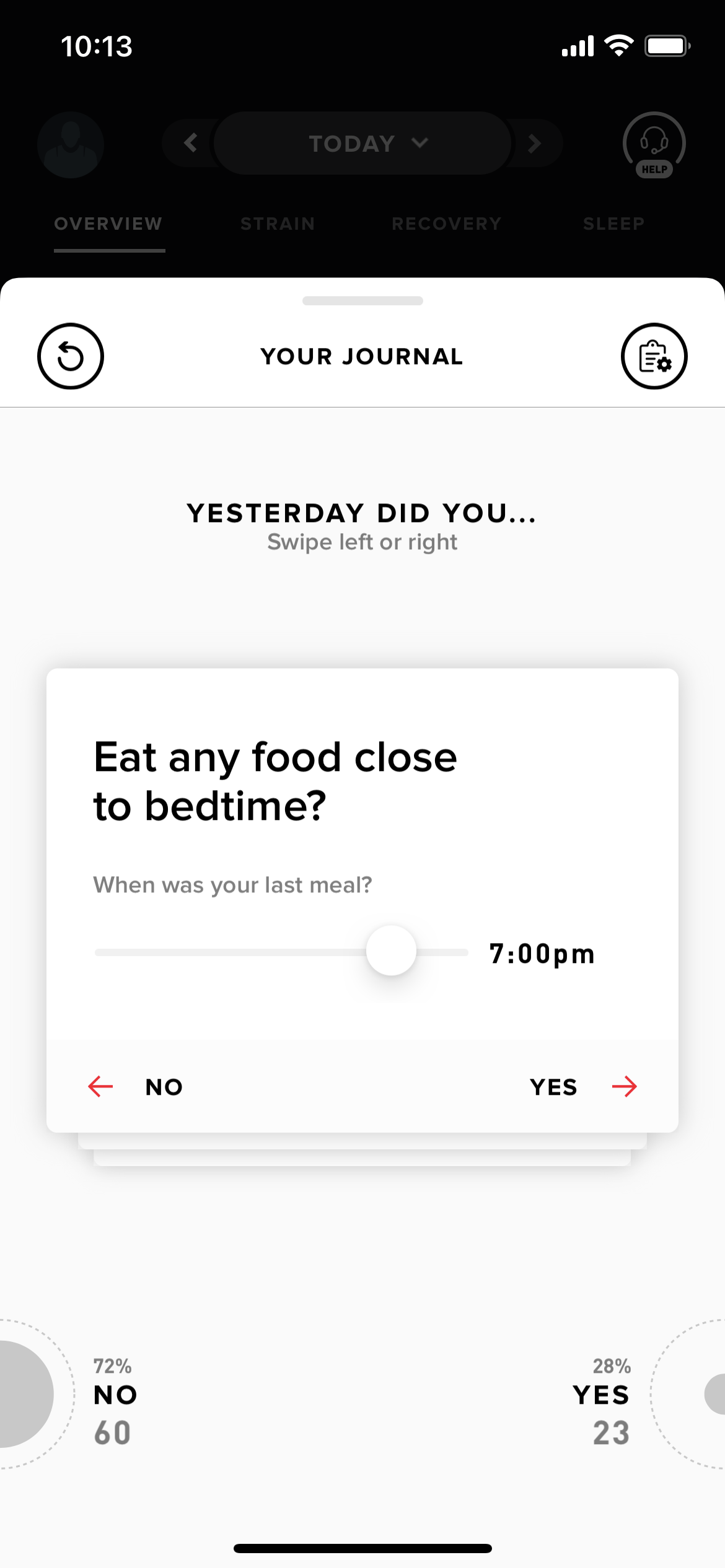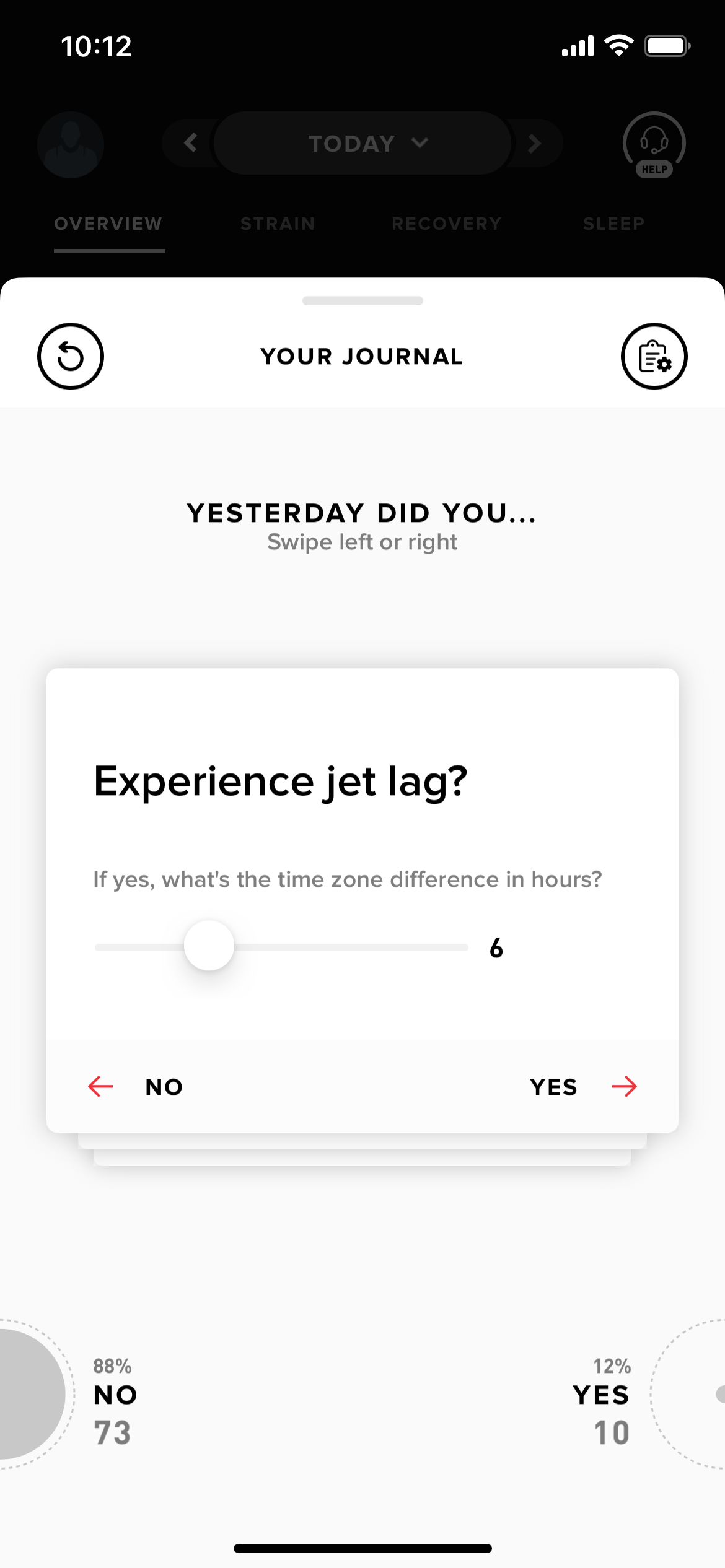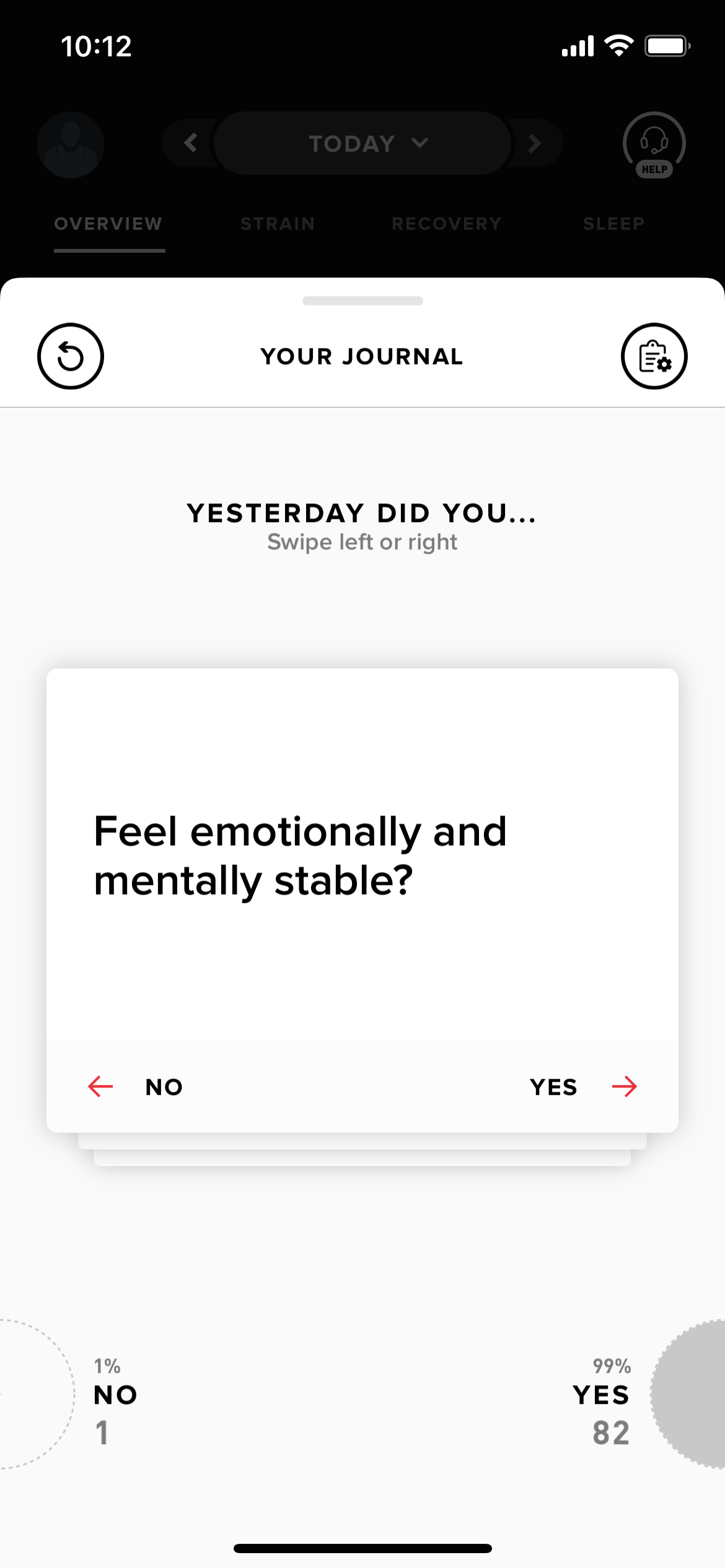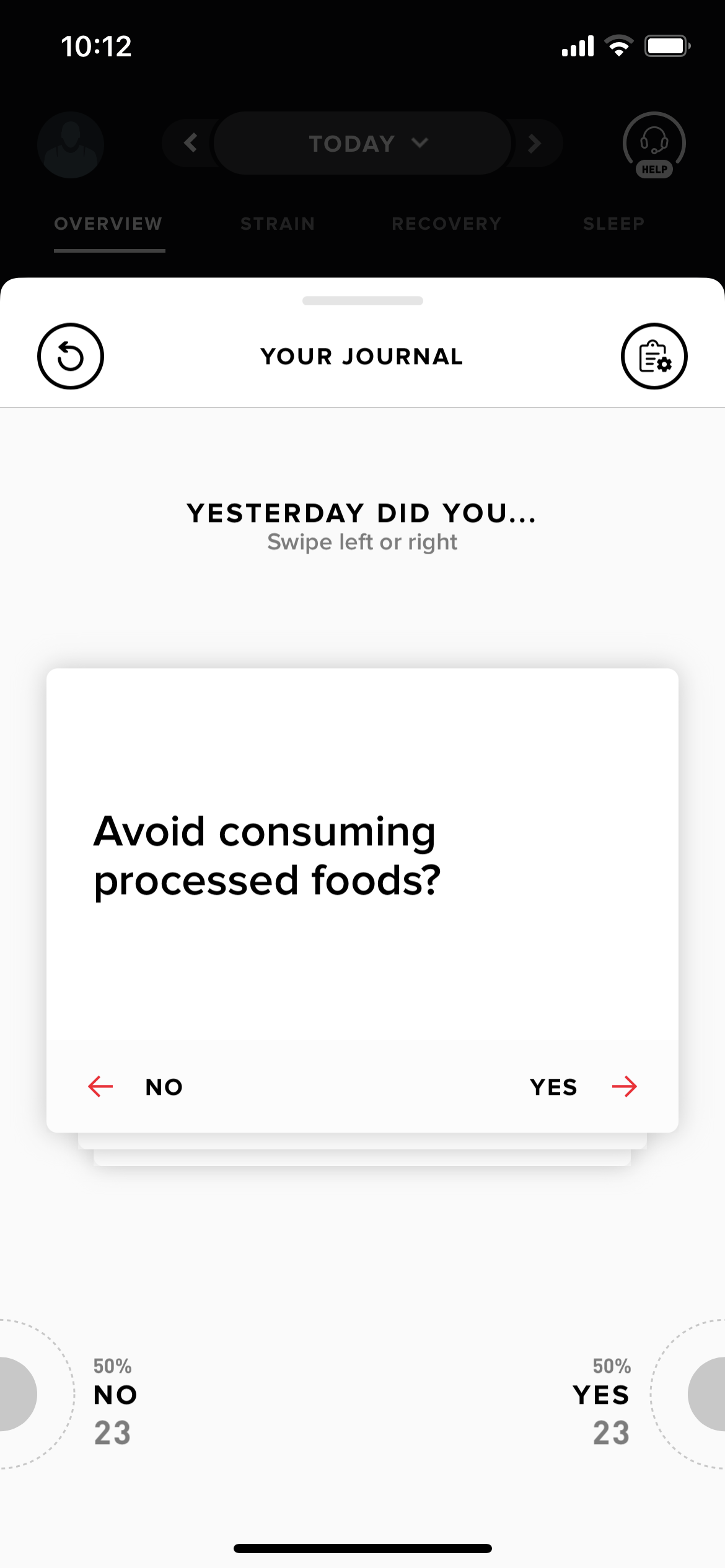How I use WHOOP
As athletes, we always want to get better and achieve more. We learn to push our bodies and mental limits everyday in the hopes of expending our comfort zones. In fact, we often have to ignore the pain or fatigue that we feel in order to push and create gains. The paradox is that this attitude and “grit” that allowed us to reach a certain level in our athletics endeavours could also be the thing that prevents us from reaching the next level. In other words, it is the case of “what got you here won’t get you there”.
It is with the goal of getting “there” that I decided to start using the WHOOP this year. Initially, David and I were not sold to the idea of a device telling me how I was feeling…Mostly we didn’t want to change our plans and reduce our training load just because a device told me I had not recovered well. The purpose of training is to build fatigue and eventually recover from it, so red days are not necessarily a bad thing, and sometimes, it is okay to push through them. We also didn’t want the data to get in our heads. Imagine you wake up in the “red” one morning and were supposed to do a big training session. If I felt bad in the session, I didn’t want to start making excuses that would be backed by the fact that my WHOOP said I was supposed to feel bad. Basically, I was afraid that the WHOOP would become a crutch or a good excuse to not push or endure in training.
So, what changed our minds?
As you can see, we were reluctant or at least unsure, but we eventually decided to be more open minded. We thought: What if we used the WHOOP to get to KNOW ourselves better? By knowing ourselves better, by understanding what behaviours influence positively or negatively our performance, then, perhaps, this could help us make better decision and optimize our training.
So in the first few months, we just wore the device and started accumulating data on our sleep, training, behaviours, life, etc. while not changing ANYTHING to our training or to the way we were doing things. We kept following our plan and listening to our bodies to make decisions just like we had always done, all while accumulating that WHOOP data.
Quickly, we realized that the WHOOP had the potential of really helping us.
One of the best thing about the WHOOP, in my opinion, is the journal. You respond to questions about your behaviour, and after a while, you can start seeing trends. For example, one of the first things I noticed was that when I was taking a magnesium supplement, I often felt bloated or had diarrhoea. The WHOOP helped me realize that really quickly, and I wonder if I would have made the connection without its help. Another example was that every time I took 15-20 to stretch before bed, my sleep quality was better. To the opposite, when I was eating dairy before bed, my sleep quality was worse.
To be honest, I never would have noticed this without the WHOOP. Those were behaviours that I had more or less always done, and that I wasn’t really paying attention too. But the WHOOP is always watching 👀, so it picked up on that. Now that I know of them, it’s up to me to make the necessary behaviour changes to optimize my sleep quality and recovery.
Above: some of the questions you can find in your customizable daily journal.
You fill out the journal every day. Then, every month, you get a monthly report showing you in which way your daily behaviour affect your sleep, recovery, etc.
**There is one mistake in the example above…I had forgotten to “un check” when I was not menstruating. So I don’t think that data is accurate.
Training
As I mentioned, when we started using WHOOP, we didn’t want it to influence our training. However, as time went on and as we started understanding how to use the device, we started seeing how it could help us. Basically, we try to use it as a way to back up what we are already feeling. For example, if one morning I wake up feeling a bit shaky, but unsure if it’s due to normal training fatigue or if I’m about to get sick, the WHOOP can help. By monitoring daily metrics like heart rate variability (HRV), respiratory rate, resting heart rate (RHR), skin temperature, etc. it can tell me if I’m in my normal range of if something is out of whack. A few times this season a situation like that happened where I felt like I was going to be sick and in fact my WHOOP data was a bit out of whack. We just took an easier day and were back feeling great straight away…who knows how many training days I could have missed if I had kept pushing and gotten sick? Getting better is about consistency and doing good days, everyday. Not about making one great day and then not doing anything for 3 days.
Alternatively, another way to use it for training is to push more when you feel great. Sometimes in training, when David sees that I’m doing good, he adds on to the session. Before, he was sometimes hesitating to do so, but still would make that call once in a while. Now, if I’m feeling good in a session, and on top of that my WHOOP also says I’m primed for strain, then it’s a green light to push the limits and get even more out of a session. By following a plan, you can make linear progress. But by jumping on opportunities, you could potentially make big leaps. And the WHOOP helps us to do just that.
There are still things that I am learning about the WHOOP and how to use it better. However, I think that the most important takeaway here is that we use the WHOOP to KNOW ourselves better, not to make decisions for us. We’ve accumulated experience over the years and this is probably the most valuable knowledge we could have, so we still want to listen to our bodies and our guts to make smart decisions. The WHOOP data is there as a helper. Whether it is to back our feelings with additional & objective data, to optimize our sleep and recovery, or to know when we can actually push ourselves even more than we thought.
This is a graphic from a race week. In blue, you see my strain score from each day. The graph below show my recovery.
One of the interesting things I’ve found this season is that I always feel most tired 48h after the race weekend. The next day (after Saturday/Sunday of racing), I always felt good enough, but 2 days after the weekend (Tuesday) I was always trashed. Knowing that this is how my body responds can help knowing how to train.
At the end of the day, like anything in life, there is no secret or magical recipe to achieving our goals. And the WHOOP will not magically make you a better athlete, or a healthier human. The WHOOP is there to observe and give you the data, but then, it’s up to you to make the necessary changes. Going all in into a certain pursuit means to leave no stones unturned, and the WHOOP helps me do just that. Some things are not fun to hear…I did like to eat dairy (yogourt) before bed! Before knowing this, I could tell myself I was being healthy and making decisions that helped me get better…but it’s not about what we tell ourselves, and the reality proved to be different. Now that I know this is not optimal for me, I can stop doing it and find something that will actually be optimal for me.
As athletes, we do always want to achieve more and try to maximize our potential. Sometimes, it does mean pushing through pain and fatigue, but other times, it means listening to our bodies and the signals it is sending us to take it easy. And the most difficult, but perhaps most interesting part of the equation is to know when it’s time to apply each.
We never want to fall into the trap of “What got us here, won’t get you there”. The WHOOP won’t make those decisions for us, but it can help guide us in the right direction, to make sure that “What got us here, won’t keep us here”.
If you would like to get your own, you can use this code for 30$ off your membership. join.whoop.com/Maghalie





